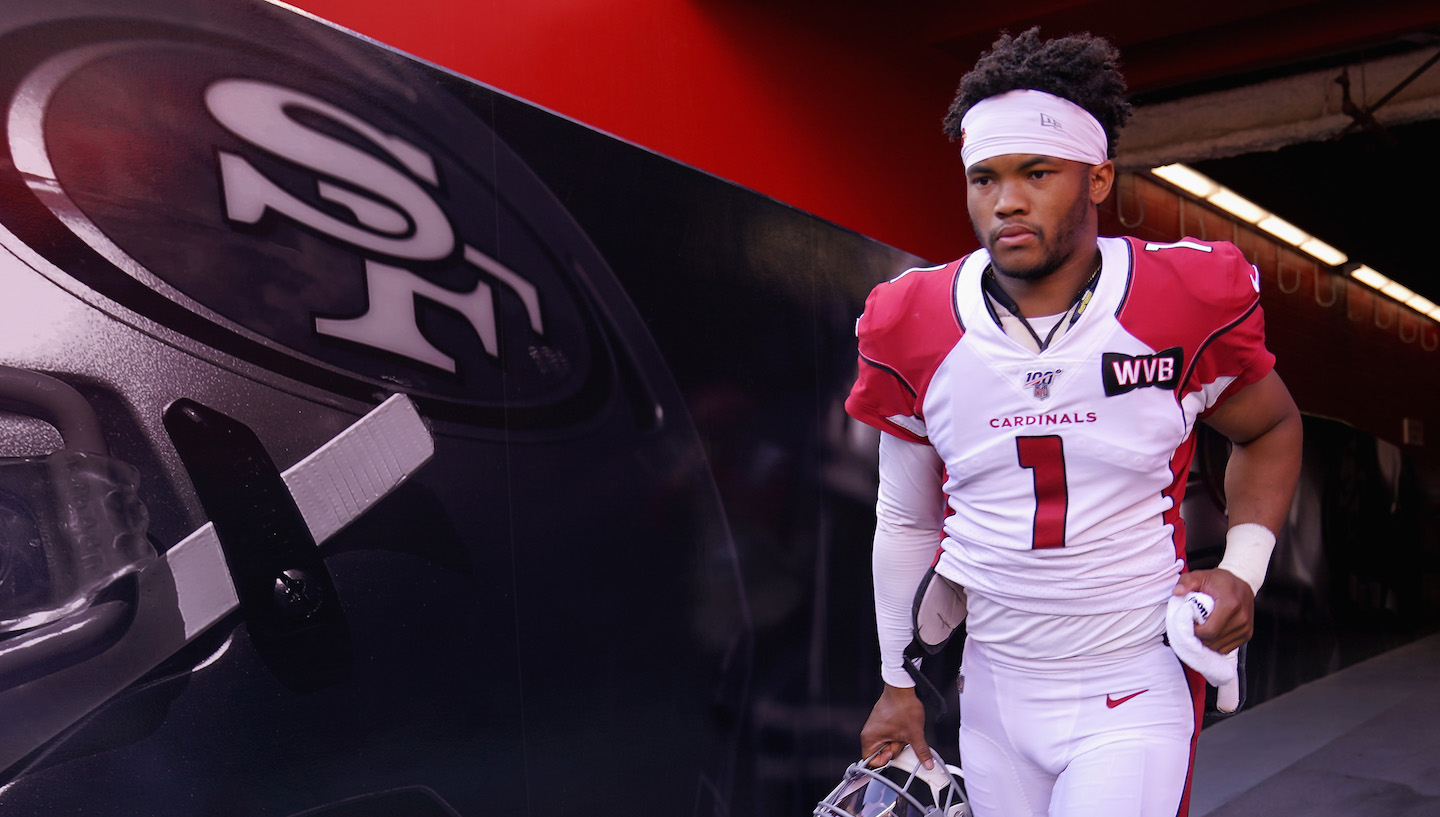When the news of Kyler Murray’s “homework clause” broke, the most common reaction was some variation of, Oh my god, he doesn’t watch film every second of every day like every other quarterback does? I’ll admit that I had the same reaction, because it was so strange to see this commonplace study habit codified in a contract. Four hours is what one quarterback might do in one sitting on his own, so what did that tell us about Murray?
But then I talked to some actual quarterbacks about it, and none of them expressed the same shock over Murray’s implied lack of preparation. Some even suggested it's possible to over-study.
“There are a lot of different ways to be successful as a NFL QB,” says former Packer and current free agent Kurt Benkert. “Some people need to study from sun-up to sun-down, day and night be watching film on their iPads right before the game and some people it absolutely wrecks because it gives them anxiety about playing and they have to be perfect.”
“Some guys like that, if [Murray] were to overload himself with information, he actually might play worse,” Benkert says. “There is a balance.”
“I remember in college I used to do way too much,” says Texans backup quarterback Kyle Allen. “I didn't take any classes my senior year so I would just watch film all day long, and then I would get there and then I would be over-computing, like I had too much information.”
Allen says it took him a couple years in the NFL to figure out that balance between doing too much work and just enough work. He now comes in on the off-day (usually Monday or Tuesday) to watch the last four games of the upcoming opponent. “To get a feel for who they are,” he says. “I have to figure out, what is my opinion of this team?" At nights during the week, he’ll watch tape on whatever the topic is for the next day’s meetings (e.g., early downs, third downs, red zone, two-minute offense). But on Saturdays, after the morning walkthrough and meeting, he puts a moratorium on film for 24 hours. On Sunday mornings, he’ll scan the opponent’s most recent game, just to refresh himself on what the defense looks like but not watching closely or for anything specific.
“I think it is different for everybody,” says Bears QB Trevor Siemian, who has started games for Denver, New Orleans, and the Jets. “I have been around some players that study a lot more and some that don't.”
Siemian says that earlier in his career, he used to bring his iPad home and watch film at night, but now that he’s married and has a baby, he likes to finish his work at the facility before heading home. He says that after the day's final meeting is over, he’ll usually spend at least a few hours on the heavy days—usually Wednesday and Thursday—watching film on his own.
Benkert has played behind Matt Ryan and Aaron Rodgers and he’s picked up study habits from both of them. He says Ryan is a morning guy while Rodgers likes to come in later and stay later. Benkert says it was Rodgers who taught him the concept of diminishing returns in tape-eating.
“You need to know everything that is needed and you need to know a little bit more than that, but after that little bit more, what are you taking from that?” he says. “You're basically watching film to turn it on and roll through it to say you watched four hours. If you are watching without a purpose, it’s really actually taking away from you.”
Benkert says the most important thing for a quarterback to study is the key tells and tips hidden in what a defense is showing pre-snap.
“Those things help, but anything further than that, sometimes it’s like, is that actually valuable and worth your time?” he says. “You only have so much time in the week to sleep and recover, and especially with how much we travel, there is so much to the big picture of being ready to go on Sundays.”
Of course, not everyone agrees that too much tape can be a bad thing. One NFL team's passing game coordinator, who asked that his name not be used, told me the best quarterbacks should always benefit from more study. "The more tape and the more information you gather should help not hurt," this coach said in a text message. "I understand what they are saying with 'too much info can be overload.' But that tells me as a coach that if a guy plays poorly because he is overthinking, [it] really means that he can’t process information quickly enough. Tom, Peyton, the great ones never say that because A) they can process information quickly and B) they understand the intent of each play. Why are we calling this play?—what are my issues that could hurt this play—what are my answers pre- and post- snap?"
Kyler Murray described his learning style to The New York Times last season as one of confidence in his own skills and visualization: “I’m not one of those guys that’s going to sit there and kill myself watching film. I don’t sit there for 24 hours and break down this team and that team and watch every game because, in my head, I see so much.”
After all the negative attention on the homework clause, the Cardinals removed it from Murray’s contract. It was probably just an effort to save face and end the controversy, but it should also serve as a reminder there isn’t one right way to be a great quarterback.






